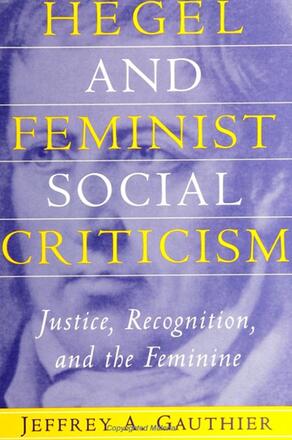
Hegel and Feminist Social Criticism
Justice, Recognition, and the Feminine
Alternative formats available from:
Description
This book draws mutually enlightening parallels between controversial themes in contemporary feminist thought and Hegel's political philosophy. Jeffrey A. Gauthier argues that feminism can gainfully employ Hegel's historicizing of Kant's ethics of universality, as well as his socializing of Kant's conception of autonomy, in defense of a number of controversial feminist claims.
Hegel and Feminist Social Criticism brings the Hegelian texts into a critical dialogue with the work of a number of important contemporary feminist theorists, including Annette Baier, Cheshire Calhoun, Drucilla Cornell, Marilyn Friedman, Marilyn Frye, Sandra Harding, Luce Irigaray, Alison Jaggar, Helen Longino, and Catharine MacKinnon. In a series of discussions taking up issues such as consciousness-raising, standpoint theory, sexist agency, critiques of universalism, the emotions, systematic violence against women, and "difference" theory, the book offers a sustained argument not only for the importance of Hegel for feminist thought but for the significance of feminism in clarifying and developing certain key Hegelian ideas as well.
Jeffrey A. Gauthier is Assistant Professor of Philosophy, University of Portland.
Reviews
"The strength of this book lies in the distinctive conjunction of Hegelianism and feminism. It partakes of and contributes to the most current wave of Hegel scholarship by not simply asking what Hegel himself said about women or gender, but rather asking the far more useful and interesting question of what Hegelianism might contribute to feminist theory, aside from or even despite Hegel's own intentions. " — Harry Brod, author of Hegel's Philosophy of Politics: Idealism, Identity, and Modernity
"The author generates an unconventional, interesting, and powerful interpretation of Hegel on morality and moral agency in a way that allows him to rethink and to justify two important moves or needs of feminism: the need to make universal criticisms despite a sense that those universals are historically relative, and the need to ground difference without regressing to the feminine characteristics argument that feeds into the hands of conservatives. " — Peter G. Stillman, editor of Hegel's Philosophy of Spirit